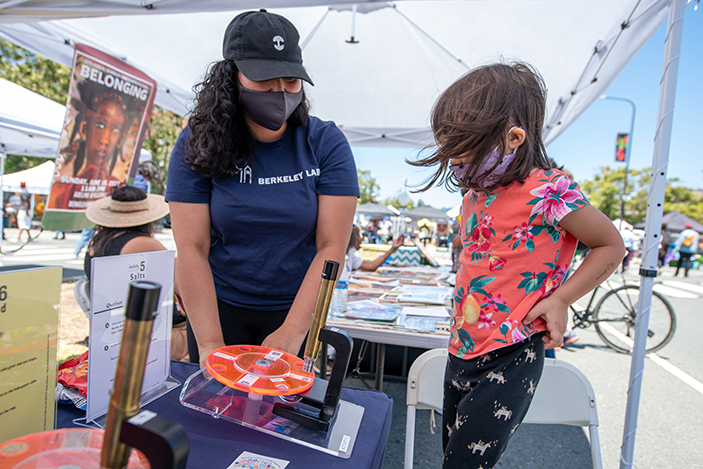For many, observing Juneteenth as a holiday is a new tradition, but it has long been established as a day of celebration for Black and African American people marking freedom from slavery. June 19, shortened to Juneteenth, is the date in 1865 that federal forces arrived in Galveston, Texas, to enforce federal laws enacted two and a half years earlier prohibiting the enslavement of people.
Visit Lab Booth Sunday at Berkeley Juneteenth Festival
Stop by and say “hi” at the Lab’s booth at Berkeley’s Juneteenth Festival on Sunday, June 18 from 11 a.m. to 7 p.m.
On June 19, 1865, Major General Gordon Granger and approximately 2,000 federal troops arrived in Galveston, Texas, to take control of the state and ensure that all enslaved people were freed. The announcement of freedom and its enforcement was particularly important in Texas. Since the capture of New Orleans in 1862 by Union troops, enslavers from Mississippi, Louisiana, and other eastern areas had been migrating to Texas with more than 150,000 enslaved people to avoid the Union Army, according to historian Henry Louis Gates, Jr. in an article in PBS.com.
The Emancipation Proclamation had formally freed them almost two and a half years earlier, and the American Civil War had largely ended with the defeat of the Confederate States in April 1865. However, Texas was the most remote of the southern states, with a low presence of Union troops, so enforcement of the proclamation had been slow and inconsistent. For decades the date June 19 was celebrated in the African-American community as a day of freedom and independence. While some states marked the day as a holiday, it was only in 2021 that it became a federal holiday.
